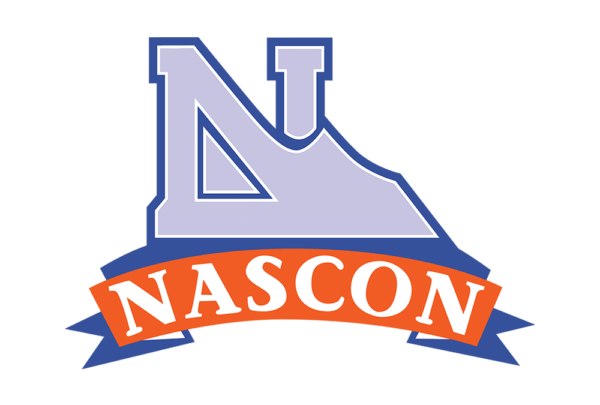NASCON Allied Industries Plc, a subsidiary of Dangote Industries Limited, has reported a turnover of ₦28.01bn representing a 2% increase from the previous year (2019: ₦27.49bn).
Profit After Tax increased by 46% to ₦2.69bn for the year, compared to ₦1.85bn in 2019.
Further analysis by Brand Spur revealed that the NASCON’s salt revenue increased by 35% to ₦25.34bn {2019: ₦18.84bn} and contributed 90% of total revenue while Seasoning contributed 10%. Seasoning revenue decreased by 7% to ₦2.67bn {2019: ₦2.86bn} mainly driven by trade disruptions in the market due to the COVID-19 pandemic.
The Managing Director, NASCON, Mr. Paul Farrer, said, “We are adapting our channels to new business trends, to ensure adaptability in the market place”
Unfortunately, the 2015 CBN Foreign Exchange policy continued to stall the importation of the necessary raw materials for both Tomato Paste and Vegetable Oil. Due to lack of raw materials, we had no production or sales of either Vegetable Oil {2019: ₦1.58bn} or Tomato Paste {2019: Nil} in the year.
Combined production efficiency for the year was 79% {2019: 80%}. Salt efficiency in all 3 plants (Oregun, Apapa and Port-Harcourt) reduced slightly to 80% {2019: 84%}. Seasoning efficiency decreased to 42% {2019: 66%} due to increased cubing capacity in the year. There was no production of Vegetable Oil and Tomato Paste in the year.
Cost of Sales for the year decreased by 24% to ₦16.45bn {2019: ₦21.65bn} driven by an increase in Salt ₦2.12bn and decreases in Vegetable Oil ₦2.60bn and Freight (delivery) ₦3.52bn. Vegetable Oil decrease was as a result of nonproduction of products in the year while Freight (delivery) expenses are reflected in Distribution expenses.
Direct material costs decreased by 3% compared to 2019 jointly due to increased global freight costs for Salt and decreased raw material purchases of Vegetable Oil. Depreciation decreased by 63% while Direct Labour decreased by 12% both due to reclassification of Freight (delivery) expenses.
Administrative expenses increased by 17% to ₦2.39bn {2019: ₦2.04bn} mainly driven by increased employee costs and additional staff bus rentals. The Staff bus rentals were essential in ensuring the safety of our staff during this COVID-19 pandemic.
Market Activation expenses increased by 39% to ₦0.37bn {2019: ₦0.27bn} as a result of targeted market activations and penetration to mitigate the market disruptions caused by the COVID-19 pandemic. Branding expenses decreased by 6% to ₦0.53bn {2019: ₦0.56bn} due to a significant reduction in in-market consumer engagements largely driven by the restrictions on large gatherings in the markets across the country.
The Delivery expenses for the year increased by 2% to ₦4.90bn {2019: ₦4.79bn in COGS} mainly driven by additional hiring of third party transporters to mitigate the effect of non-operational trucks and infrastructure challenges in Nigeria while ensuring timely delivery of all our products.
Investment income decreased by 44% to ₦0.05bn {2019: ₦0.09bn} as we focused our resources on investing in the new Salt refinery plant to optimize the refined salt capacity. Finance costs for the year was ₦0.17bn {2019: ₦0.22bn} driven mainly by ₦0.11bn interest on borrowings related to specific borrowings for capital projects. The average effective interest rate during the year was 9%.
Tax expense for the year increased by 32% to ₦1.22bn {2019: ₦0.92bn}, including a deferred tax expense of ₦0.36bn {2019: ₦0.03bn}. The effective tax rate was 31% {2019: 33%}.
Total assets increased by 15% to ₦44.31bn {2019: ₦38.67bn}. This increase was driven predominantly by an increase in trade and other receivables, inventories and other assets. Cash and bank for the year decreased by 29% compared to the prior year to ₦2.60bn {2019: ₦3.66bn}.
Total liabilities increased by 15% to ₦31.59bn {2019: ₦27.58bn} primarily driven by an increase in trade and other payables and a decrease in borrowings.
Borrowings for the year decreased by ₦3.30bn relating to the repayment of specific borrowings for capital projects in 2019. Total equity increased year on year by 15% to ₦12.72bn {2019: ₦11.09bn}.
Proposed dividend
On Thursday 25th of February, 2021, the Directors proposed to maintain the dividend of ₦0.40 per share {2019: ₦0.40} to be paid to shareholders on Monday 31st of May, 2021.
The dividend represents a payout ratio of 39.2% {2019: 57.1%} reduced due to capital expenditure requirements in 2021. If approved, the total amount payable will be ₦1.06bn {2019: ₦1.06bn}.

